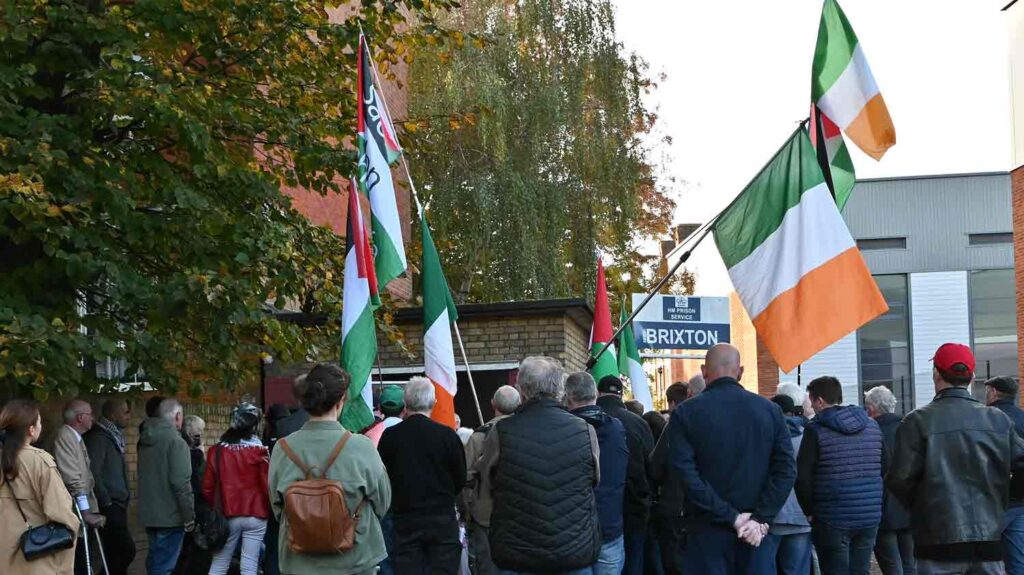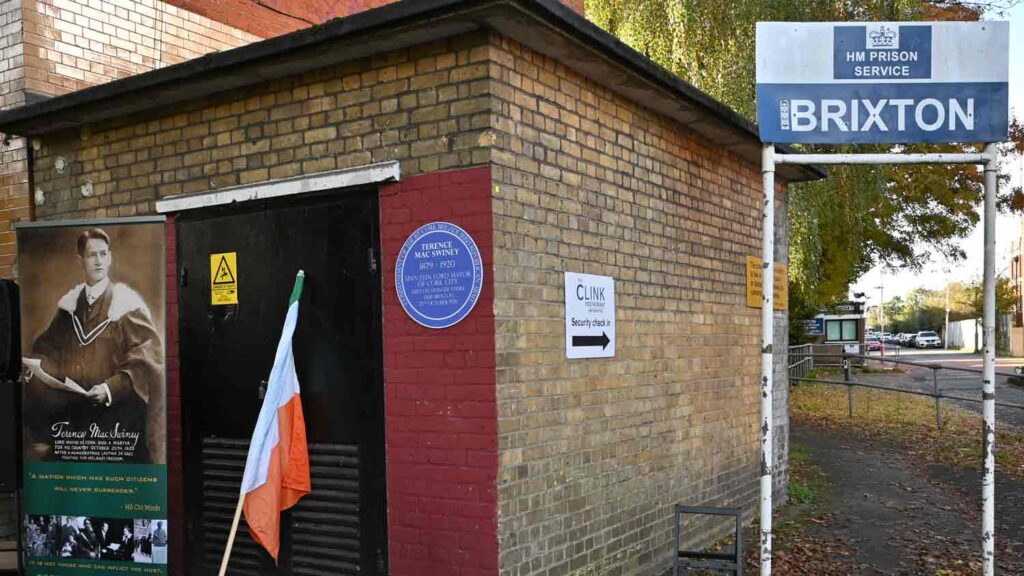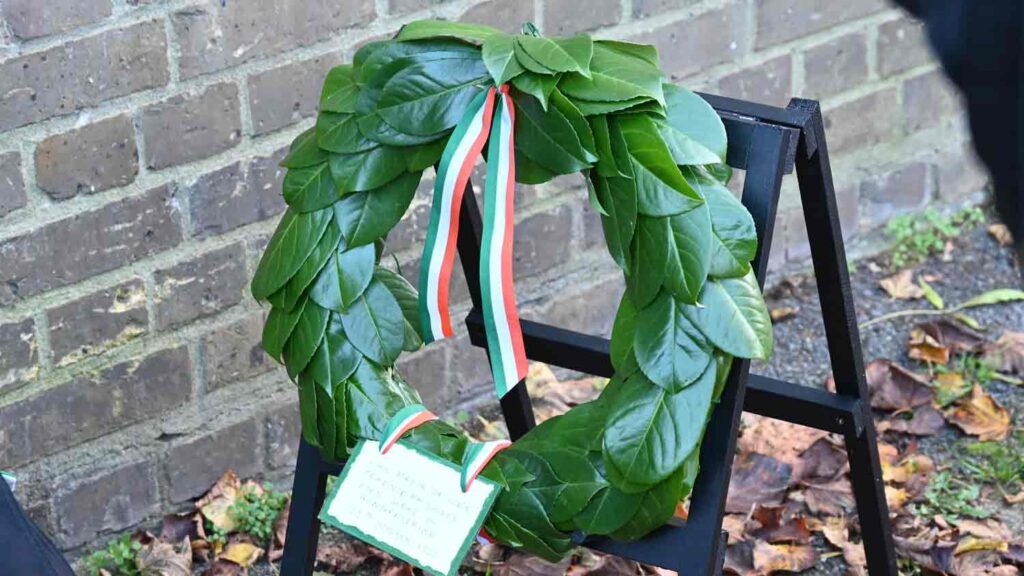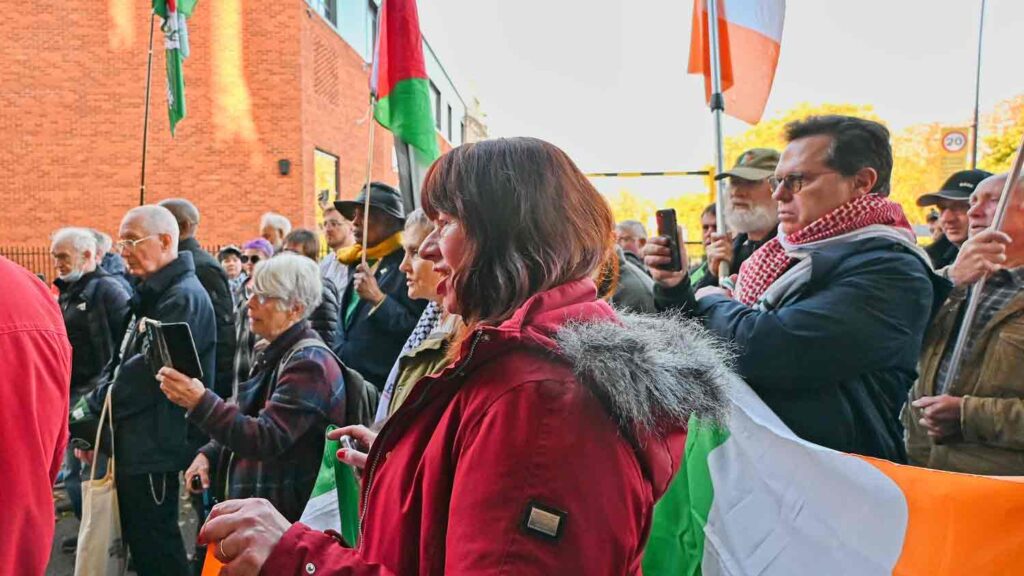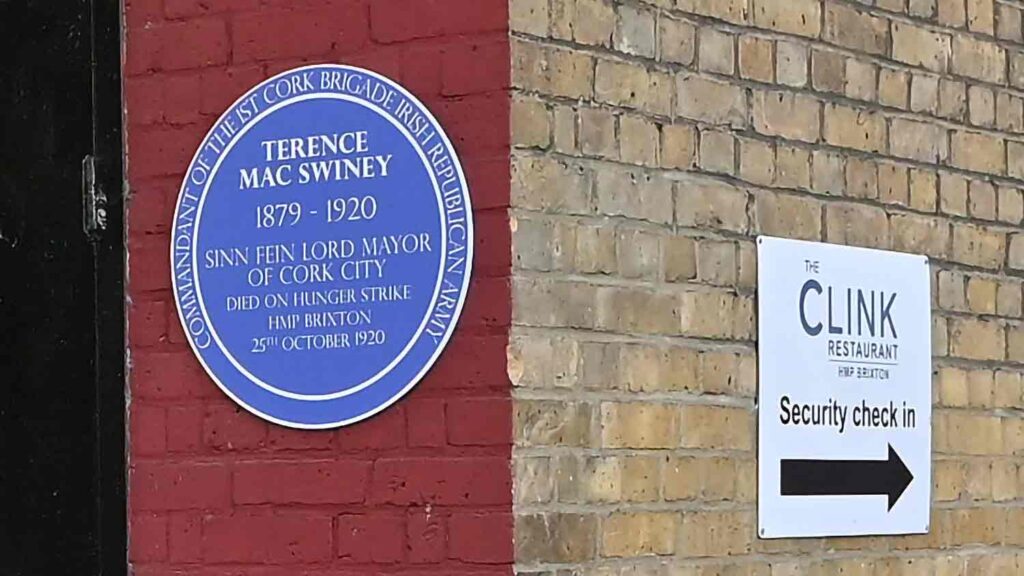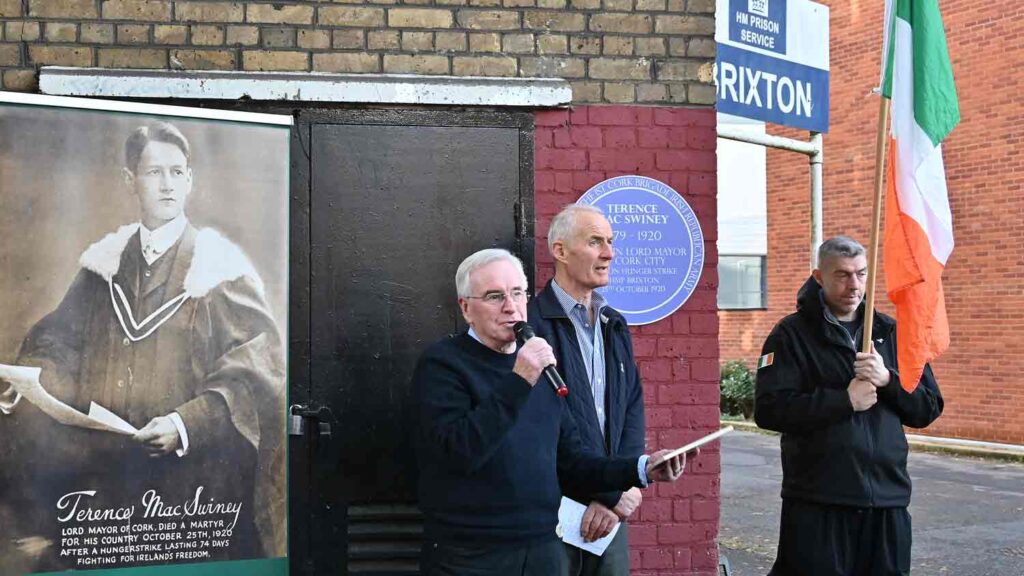
The annual commemoration of an Irish patriot who died in Brixton prison after a hunger strike heard today (27 October) how hundreds of Black people chanted “Victory to the IRA” outside the prison in 1981.
Many people arrested during that year’s Uprising in Brixton were held in the prison and there was a crowd of about 1,000 people outside it when one of the speakers at today’s event arrived with a lawyer to free an imprisoned work colleague.
He encouraged the crowd to chant “Victory to the IRA”, which they did for several hours. At the time the IRA was bombing British cities and the chant had a big impact.
It made headline news when about 15,000 marchers supporting the Brixton Uprising chanted it as they marched past Downing Street a few days later, infuriating then prime minister Margaret Thatcher.
Terence MacSwiney, Lord Mayor of Cork in Ireland, died in Brixton prison on 25 October, 1920, after a 74-day hunger strike following his arrest by the British authorities as Irish people fought to end their colonial status.
A prominent and gifted author, dramatist and political thinker, his death at the age of 41 was devastating for Britain’s international reputation and a boost for the worldwide struggle against colonialism at the time.
The annual commemoration of his death outside Brixton prison began in 2016, organised as it is today by a group of Irish historians and activists.
John McDonnell, MP for Hayes and Harlington in West London and a former shadow chancellor of the exchequer, recalled the “appalling” level of anti-Irish racism in London the 1970s and 80s.
He told the commemoration event that Terence MacSwiney’s death “exposed to the world what British imperialism meant with regard to Ireland”.
It also showed that, “when you’re up against overwhelming force, you have to use moral force”. “There is no better way, I think,” said the MP “to claim the moral high ground, than actually demonstrating you’re willing to give your life for the cause.”
What it also did was to “set the world alight” becoming an inspiration that has continued through generations.

